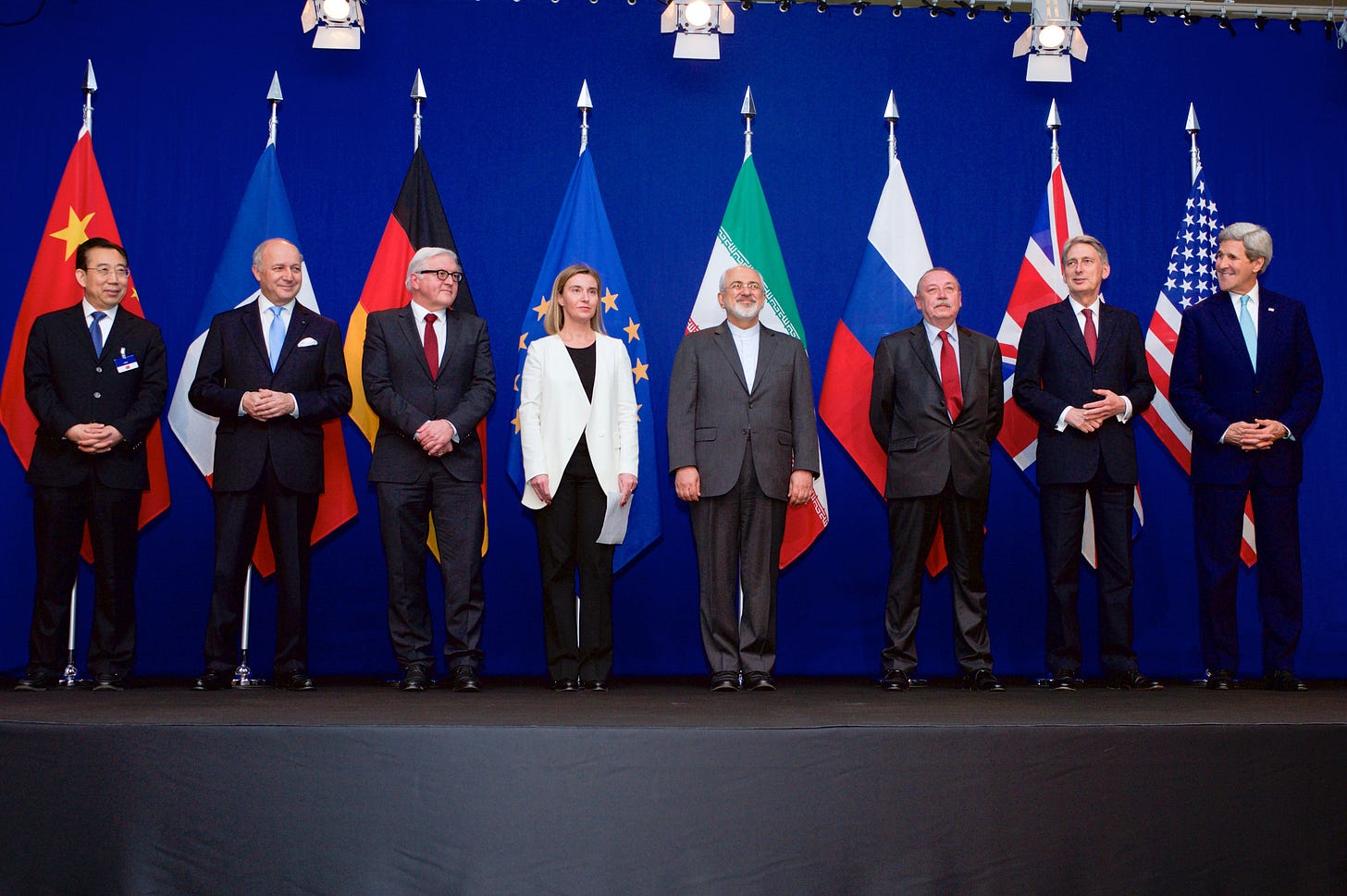Is It Time for Khamenei to Go?
American Foreign Policy Must Focus on Preventing Iranian nuclear Proliferation By Any Means Necessary

The Biden administration recently reached a settlement with the Iranian government to release five American hostages last month in exchange for $6 billion: $1.2 billion a hostage. This gross humiliation of the United States is yet another incidence of incessant accommodation towards a rogue regime that skirts around international law. Tragically, such displays of weakness are all too frequent from another misguided disciple of the failed Obama foreign policy doctrine.
When the United States bungles the withdrawal of our forces from Afghanistan, seems to be on the losing end of every prisoner swap, and fails to deter Russian aggression in Ukraine, we place ourselves in a dangerous position. Skepticism about foreign intervention has led to the “Iraq Syndrome,” where genuine concerns about the implications of regime change and nation-building have policymakers gripped in irrational paralysis about any decisions related to national security. Therefore, the power of our word has depreciated in value. When President Obama failed to intervene against Assad in 2013, America’s adversaries salivated at the prospect of unchecked aggression and expansion in the Middle East. Our military hegemony serves as the most crucial caution against any authoritarian nation that seeks to harm the free nations of the world.
When Mr. Obama reached an agreement with the Iranian regime in 2015, American credibility reached a dangerously low point. The JCPOA, colloquially referred to as the Iran Nuke Deal, was a poorly executed attempt to address rightful concerns about Iran’s nuclear ambitions. With a disturbing similarity to the ill-fated Munich agreement of 1938, which did nothing to dissuade Hitler’s territorial ambitions, Mr. Obama generously provided $1.7 billion in cash to the Iranian regime in exchange for empty promises that they would reduce their enriched uranium stockpile.
Sanctions, which had been an effective deterrent against the regime in Tehran, were subsequently lifted by the United States, the United Nations, and the European Union. Iran soon found itself back with the same credibility and stature as if it had not been financing and fighting wars of aggression against their neighbors in the Middle East. Make no mistake: Iran’s intentions are clear. Like Saddam Hussein, Iran seeks to weaken American influence in the Middle East, to place a wedge between Washington and Israel, and to procure weapons of mass destruction that would enable a malicious terrorist regime, known for their atrocious conduct, to bring horrors of the highest magnitude.
Rafael Mariano Grossi, a member of the International Atomic Agency, reported earlier this year that Iran possesses “enough nuclear material for several nuclear weapons, not one at this point.” Yet many feign surprise that a rogue nation would exploit the deal's provisions to do what they pledged not to covertly. This is unsurprising given the inadequate verification mechanisms embedded within the deal. Defenders of the deal point to the alleged positive results of the inspections — yet Tehran has not permitted inspections of its underground military installations that possess centrifuges. The deal also implemented sunset clauses that, if Iran was compliant, only guaranteed their participation for 10-15 years.
All Mr. Obama’s egregious deal did was enable Iran to finance once again evildoers such as Hezbollah, various Palestinian militias, Assad's regime in Syria, and the Houthi rebels in Yemen. Our strongest Middle Eastern allies, Saudi Arabia and Israel, implored the United States not to join the deal. Mr. Obama seemed all too eager to make concessions to Iran. Any negotiation with the regime could have been far more assertive and aggressive. Frankly, democracy would have come to Iran years earlier had Mr. Obama offered much-needed aid to the protesters in the Arab Spring.
Thankfully, after the Trump administration withdrew from the deal, the President and Secretary Blinken are in no rush to repeat the same error. Though Mr. Biden’s policy toward Iran still leaves room for concern, Mr. Blinken clarified, on behalf of the administration, that any potential deal would need serious rework, stating: “It has to meet our security objectives, it has to meet our interests.” Mr. Blinken’s words fail to accommodate the present situation: Iran’s security objectives do not align with ours.
The United States is a peaceful nation, and though we do not possess any desire to subjugate and dominate other nations, only one clear alternative remains. Khamenei and the rest of his regime have shown that their nuclear ambitions will not stop — until we stop them. Our foreign policy must align away from deal-making and toward the removal of Khamenei and his cronies from power, especially considering recent anti-government sentiment against them. Though the promises of freedom appeal to the good and noble people of Iran, any notion of a coup or reform by peaceful means is, unfortunately, fictional. Recall the failures of the Green Wave.
Removing Khamenei would require a military operation originating from the ground. Unlike our previous Middle East quagmires, we would find a much more sympathetic populace and easily stir up revolutionary sentiment against the mullahs. Would the Iranian military truly be willing to stand against us? Operation Praying Mantis remains indelibly etched in their minds. Their previous military performances do not necessarily inspire fear. Regime change and foreign intervention are drastic measures reserved for when all other diplomatic options have been exhausted. However, I would recall Clausewitz’s saying, “war is diplomacy by other means,” and pose a hypothetical: Would you do it now or wait until we find ourselves in the midst of a Middle East arms race?


